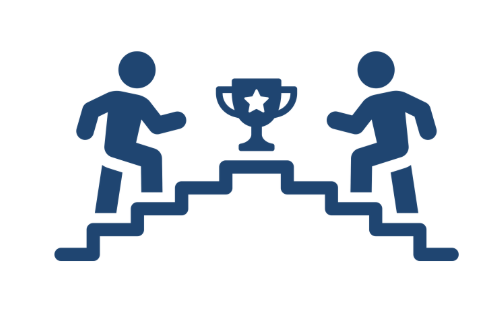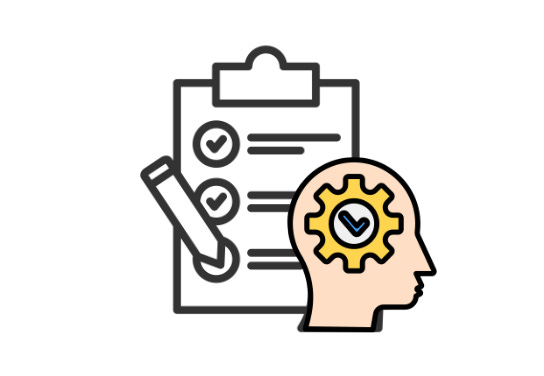How to Succeed in Data Engineering Interviews
Practical advice from Yordan Ivanov, Head of Data Engineering
We’ve put together a Data Engineering interview preparation guide1 for anyone who wants to break into data engineering, or for current data engineers looking to grow and find new roles.
So far, we’ve covered what data engineering is, the key skills we need, and how to prepare for interviews.
This time, we wanted to take a step further and hear directly from someone who’s been on the other side of the interview table.
We’re excited to have , Head of Data Engineering at Dext, join us. He has 15 years of experience in software and 8 years of building modern data platforms. Over the years, he has run hundreds of interviews for software, data, and analytics engineers.
We asked Yordan a series of questions on data engineering and interview preparation, and he generously shared his insights.
His answers cover:
Core Skills and Career Growth
Staying Relevant in this Fast-Changing Field
Tools, Tests, and Mindset
The Interview as a Two-Way Street
If you’d like to keep learning from Yordan, we highly recommend checking out his Substack, Data Gibberish2 and LinkedIn3, where he shares great tips and advice.
Core Skills and Career Growth
1. From your perspective, what are the top skills a data engineer needs to stand out in interviews today?
I look for depth in one core system. Show me one technology you understand under the hood. I don’t care if it’s Snowflake, Spark, BigQuery, or dbt. If you can teach me how it works and where it breaks, you stand out. One deep spike beats ten shallow demos.
Then I look for business fluency. Tell me which metric your work moves. Tell me how your pipeline changed revenue, speed, or decisions. If your story ties cleanly to money or influence, I remember you long after the call. I don’t hire tool tourists. I hire owners.
2. What are the common red flags you notice in candidates during interviews?
If you can’t explain why you chose a tool or approach, I get nervous. If you can’t describe the business impact, I get bored.
Curiosity matters. Ask me about the team, the roadmap, the pain. Silence here screams low interest.Communication is huge. If your ideas land foggy, your work will land late.
Toxic vibes kill offers. I’ve ended interviews at minute ten for blame games and know-it-all energy. I want hungry, humble, clear thinkers who keep learning.
3. How much weight do you place on certifications? Are there specific ones that matter, or are there better ways for candidates to demonstrate their skills?
Somebody in my community recently asked me the same question.
Certs are a bonus, not a ticket. I care about what you can do. A fresh cert can reduce my testing because someone else already vetted you. But if your stories feel thin, the badge won’t save you.
I value focused certs in one or two areas. Go deep. Bring a short walkthrough video or repo where you solved a real problem. Proof beats paper every time.
4. What advice would you give to newcomers breaking into data engineering?
Master the fundamentals. Storage. Compute. SQL. Batch vs streaming. Contracts. Reliability.
Build one project that solves a problem in your life. Ship it. Break it. Fix it. Explain it.
Stop being only a user. Ask how you’d build the tool you love. When you learn one stack deeply, you can guess how others work. That confidence shows up in interviews.
Staying Relevant in this Fast-Changing Field
5. How can data engineers make themselves consistently relevant and marketable as the field evolves?
I treat data engineering as a mindset, not a toolbox. Tools come and go. The job is solving business pain with data. When I speak in terms of dollars, speed, or decisions, I get taken seriously. That’s influence.
Look three years out. Ask if your design still makes sense when the company triples. Map work to MRR, CAC, or churn. If you connect your build to revenue, you move from “coder” to partner real fast.
6. How has AI changed data engineering interviews (if at all), and how should candidates prepare for those changes?
I don’t care if you used AI. I care if you understand the code you ship. Use AI to draft. Then audit, test, and own the decision. If you can’t explain a line, I assume you can’t maintain it.
Come ready to narrate your thought process. Why this approach, what you tried first, what you rolled back, what risks you saw. AI isn’t a cheat code. It’s power tools. Powerful tools still need a skilled operator.
Tools, Tests, and Mindset
7. Many tools in the data engineering world overlap in functionality. For example, an orchestrator with built-in data quality features or so.
Should engineers rely on these “all-in-one” tools?
Or is it better to separate concerns with dedicated tools?
Or does it even matter?
It matters less than people think. If you know the fundamentals, you can swap tools without drama. That said, I lean to dedicated tools for depth and reliability.
If you choose an all-in-one, bring a reason. Vendor footprint, team skill, security posture, or time to value. Pick a lane, defend it with clear tradeoffs, and I’m happy.
8. When you interview candidates, how do you usually assess technical ability, coding tests, home assignments, live problem-solving, or something else?
I prefer live problem-solving. I watch how you think, not how fast you type. I listen for structure, tradeoffs, and how you reduce risk.
Coding tests and take-homes can be gamed. Conversations can’t.
ProTip: Record yourself how you explain code/decisions. Remember to watch the recording and learn.
What’s your advice for preparing for each type?
Practice out loud. Record yourself solving a problem. Listen to your own rambling. Cut the rambling. Keep the signal. This simple loop makes you calm and clear in the room.
Build small projects at home and rehearse a five-minute story for each: problem, stakes, options, choice, result. The interviewer expects nerves. They want your thinking. Show your thinking.
The Interview as a Two-Way Street
9. Interviews go both ways. What can candidates do to assess the company and interviewer to ensure the role is a good fit for them, too?
Prepare a list of questions that probe process, ownership, and stakes.
How does the company define “done” on data work. Where does data break today. Which metric hurts most. How are decisions made. If they dodge, consider it data.
Use the product if they have one. Read what they publish. Ask about the next 12 months. Great interviews feel like working sessions. The best hiring managers light up when you ask sharp questions.
10. After the interview, does following up or connecting on LinkedIn, emailing the interviewers and so on really make a difference? If yes, what’s the best way to do it professionally
I love connecting on LinkedIn. It keeps doors open. It rarely flips a no to a yes. But it plants seeds. Careers are long. Networks win.
Send a short thank-you. One link if you promised it. No essays.
I once got a rather aggressive DM from a candidate asking why they didn't get the job. Not a good look. Wouldn't invite them for an interview if they apply again.
Question from the community
11. How can organisations best leverage automation to reduce risk and speed up complex data migrations?
I’m not sure if this is related to the optic, but here’s my response to the question, the way I understand it:
Automation is great when you respect it. Use it to script repeatable steps, validate contracts, run dry runs, backfill incrementally, and verify with checksums. Bake in idempotency. Add kill switches.
Don’t automate judgment. Keep humans in the loop for cutover, rollback, and sign-off. Pilot on a narrow slice, measure errors and time saved, then scale. Fast is fine. Safe is profit.
Final Thoughts & Advice
I run a simple plan. I pick one stack and learn it deeply. I build one project that fixes a pain I live with. I tie it to one number I can say in the room. I keep it small and real. No BS.
I write a five-part story:
Problem. Stakes. Options. Choice. Result.
I practice out loud every day. I record once. I cut the ramble. I keep the signal. I aim for five minutes flat.
I bring proof. A repo. A one-page diagram. A short runbook with tests and alerts. I show risk and rollback. I use AI to draft, then I test hard. I can explain each choice in one sentence.
Before each call, I try the product and read the basics. I bring three sharp questions on money, risk, and the next 12 months. During the call, I think out loud and draw. After I send one short thank you with any promised link.
Conclusion
Yordan’s advice shows that succeeding in data engineering interviews is less about memorising tools or collecting certifications and more about ownership, clarity, and impact. Focus on mastering one stack deeply, connect your work to real business outcomes, and demonstrate curiosity and strong fundamentals. Treat interviews as a conversation—ask questions, explain your thought process, and show how you think.
Whether you’re just starting or experienced, every interview is a chance to learn, build your network, and plant seeds for the future.
For more tips on doing well in data engineering interviews, check out these posts by Yordan:
New to data engineering? Check out our Data Engineering Lifecycle series here7 .
Thinking about transitioning to data engineering? Check out our Data Career Transition series here8.
https://pipeline2insights.substack.com/t/interview-preperation
https://www.datagibberish.com
https://www.linkedin.com/in/ivanovyordan/
https://www.datagibberish.com/p/how-i-interview-data-engineers
https://www.datagibberish.com/p/5-red-behaviour-flags-during-data-engineering-interviews
https://www.datagibberish.com/p/hiring-curious-data-engineers
https://pipeline2insights.substack.com/t/data-engineering-life-cycle
https://pipeline2insights.substack.com/t/career-transition








